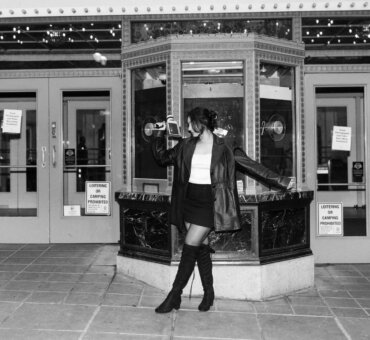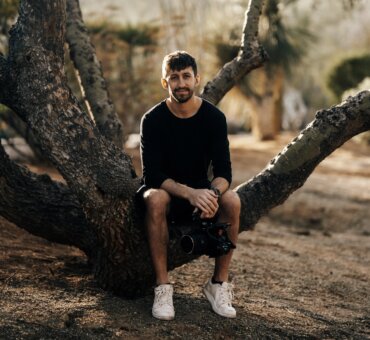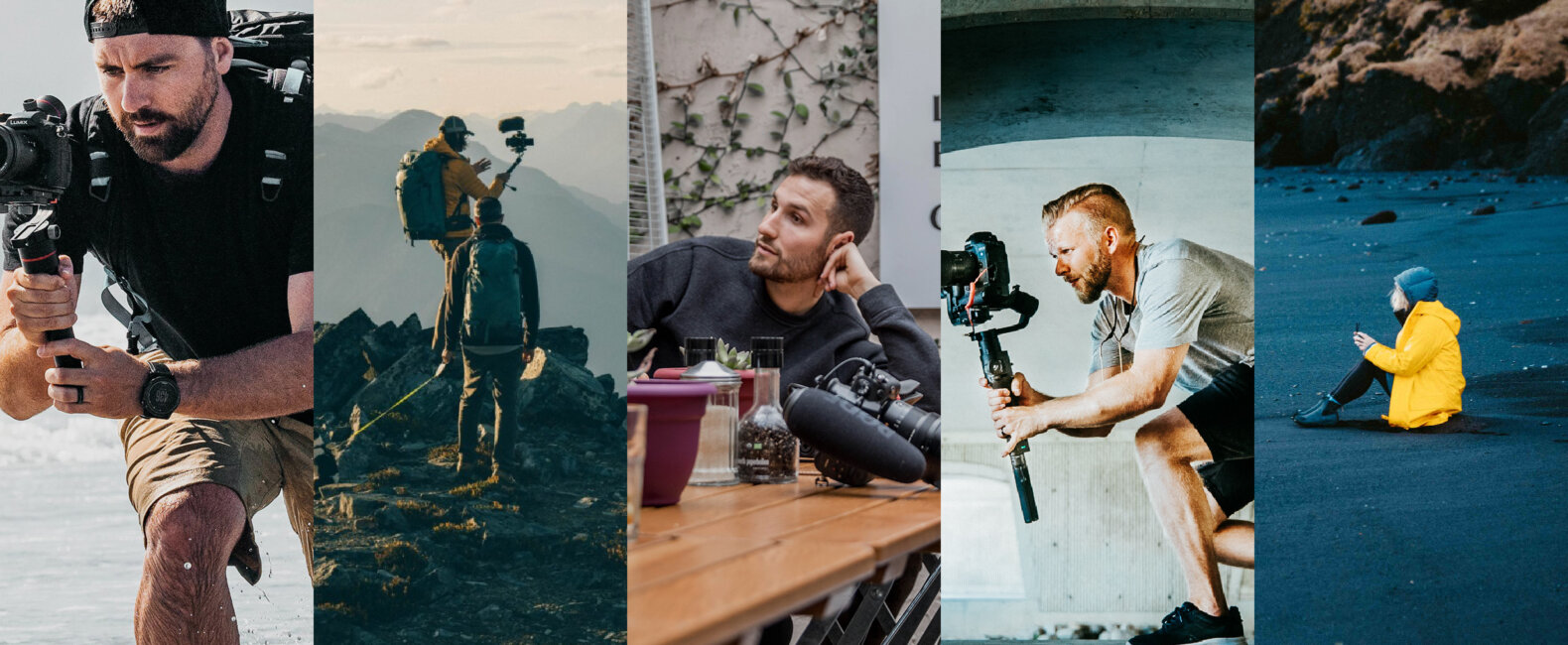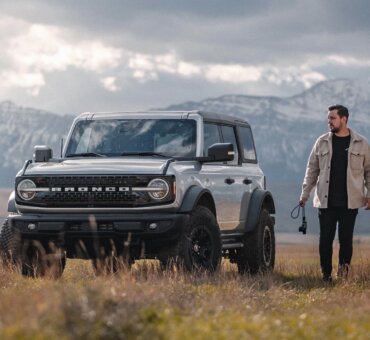It’s the end of 2019, so it must be listicle time. There are a lot of them out there (trust us, we’ve looked) but, we think our take on the “best of” article is a little different. In our second of three (check out the first here), we’re tackling the best YouTube advice we received in 2019.
In the grand scheme of things, filmmaking is in its infancy at just over 100 years old. That puts YouTube somewhere around the newborn stage. The platform is constantly changing, and surprising us with how people can use it to be more creative.
After we launched our first-ever subscription model, 2019 was a big year for diving into everything YouTube. We started bringing on Ambassadors to spread the good news about better music and started sharing more insights from creators on our blog. As per usual, there was more than we could fit into just one blog post, so we decided to expand a bit in this end-of-year listicle.
Unsurprisingly, YouTubers are very insightful people. In a craft that requires constant flexibility, creativity, and communication, that probably makes sense. So, here are 5 quotes we pulled from interviews over the past year that we think will speak to your own career on YouTube.
Jeven Dovey on Whether or Not to Start

YouTuber Jeven Dovey had a lot of advice for starting your channel, but he wrapped up our conversation by talking about whether or not to start at all. With more people on YouTube than ever, it can seem like too little too late, but he had a much different perspective:
“I think a lot of people are scared there are too many YouTubers now. But, I think it’s the complete opposite. I think that there are more people consuming YouTube now more than ever. That means there’s more demand for new channels. People can be subscribed to as many channels as they want, so you’re not in competition with everyone. It’s more about the community. Once you get out of the mindset of trying to compete with other people, you start realizing that people want to help each other. You’ll find the different creators who are on your level.
In general, if people want to be YouTubers, if they want to go down this path, they just need to start creating content. Start creating content right now. Don’t wait around. Don’t wait for the perfect moment. It comes down to trying things and failing. If you don’t start, you’ll never know what works or you’ll never know if you even want to do this. I think the biggest thing when people ask me about becoming a YouTuber I’m always like just start right now. You’ll start figuring out as you go. Nothing’s perfect. Nothing’s going to be handed to you. You’re going to have to just figure it out as you go.”
Levi Allen on Making Work You’re Proud Of

Work-life balance in a YouTube career can be a difficult one to manage, and Levi Allen knows this more than anyone. In his recent cross-country van trip with his wife, he learned more about balancing priorities, and choosing which projects were really worthwhile:
“Any time I’m stressed about, if I’m not sure if this video is interesting enough, putting constraints on something to me is just rocket fuel for having good ideas. In essence, that’s what traveling out of a vehicle has done for me in a lot of ways. It forces a new intentionality behind almost every decision. It makes those key decisions more obvious. Do I want to hang out on this mountain top with my wife, or do I want to edit this video that I’m not very proud of?
It makes you ask the question: What could I make that I’m more proud of? What are the things I could make that people would miss if I didn’t make them? It’s easy to get into this routine of just making video after video. Trying to find ways to actually challenge yourself is important.
I’ve been forced to ask challenging questions lately. How do I keep growing as an artist without just getting complacent? That’s a very real aspect of growing on Youtube.”
Zack Honarver on Metrics That Matter

Yes Theory has a lot of subscribers, so we were taken aback when their Manager, Zack Honarvar, said it’s the last metric they look at these days. They have a much more holistic approach to true success with their channel, and it begins and ends with action:
“To be honest, I’m the last advocate for looking at subscribers. One of the things that we changed as the team, after hitting a million subscribers, is we realized subscriber count was almost a vanity metric for the team. It used to be our North star number, but we’ve actually changed that number to the amount of people that have taken action or been impacted.
It’s not really a YouTube number, so to speak. But, we decided that someone clicking the button that says ‘Subscribe’ isn’t really taking action to better their lives. We want to inspire people.
How do we build videos, challenges for our audience where we can actually try to quantify and track how many people are taking action to better their lives, or better their situations? We asked our audience, within 24 hours, to go for a mile run wherever they are and then share a video. Within 24 hours, we got over 27,000 pledge forms of runners, and over 8,000 videos submitted.
For us, that was really important. It means so much more than someone just clicking ‘Subscribe’ and passively watching videos. It means that they watched our video, and then put the computer or phone down, and went outside, and actually did what our philosophy empowered them to do.”
Matti Haapoja on the Value of a Good Story

Matti Haapoja is a more experienced filmmaker than most YouTubers. He had a very successful career as a DP before he ever got into the platform, and it taught him many things. But, he was surprised to find that what YouTube lacks in technical takeaways, it more than makes up for as a masterclass in being able to tell a good story:
“Being a DP taught me how to make things look beautiful and how to work with a crew. But, YouTube really taught me storytelling. Storytelling is something that’s really hard to learn, I think. It’s kind of an ambiguous idea. It was for me. What is storytelling, really? How do you tell compelling stories that people are interested in? How do you make videos that people actually want to watch?
YouTube has really taught me that watching videos has to have a point. It has to have some sort of story to it. I would say YouTube has made me a more well-rounded filmmaker. It’s taught me different things that I would’ve never learned just making commercials and shooting weddings.
A lot of people would think that the videos are super effortless, that I just run around filming. But, I plan every single video that I make. I have a story for the video. Sometimes you don’t know what’s gonna happen, and you have to improvise around that, but I know as long as I cover those points I’m gonna have a story.
On YouTube, you have to either entertain or provide value. In my mind, you wanna do both for every single video, but I rely a lot on providing value. I wanna give you something. I want you to learn something or be inspired.”
Iz Harris on Making Content for Humans

YouTube is a double-edged sword sometimes. When you bring millions of people together, it will surely have some negative impacts. But, during our conversation with YouTuber Iz Harris, we were reminded of the incredible impact that platform can have, especially when people have the right motives:
“I’ve been pretty blown away by the reception of certain videos that I’ve put out there. There was a certain naivete I had going in, that I think was beneficial to me. I didn’t really know very much to think about the commenters or how it would be received. I was just throwing stuff out there.
I did, though, start to notice this trend from the people watching—they want to see themselves in your work. Which basically means your work is human, you know? There’s a much deeper reception of it, which matters in building a community. I definitely noticed that as I opened up about things like mental health, or having a special needs child people were saying, ‘I have no one to talk about this. I’ve never heard someone speak about taking antidepressants before. I’ve never heard someone say sometimes it’s okay to not be okay’. I’m not saying I’m the first person to ever say these things, but for some of these people I’m the first person they’ve heard say those things. You know? That definitely motivates me.”



















































































